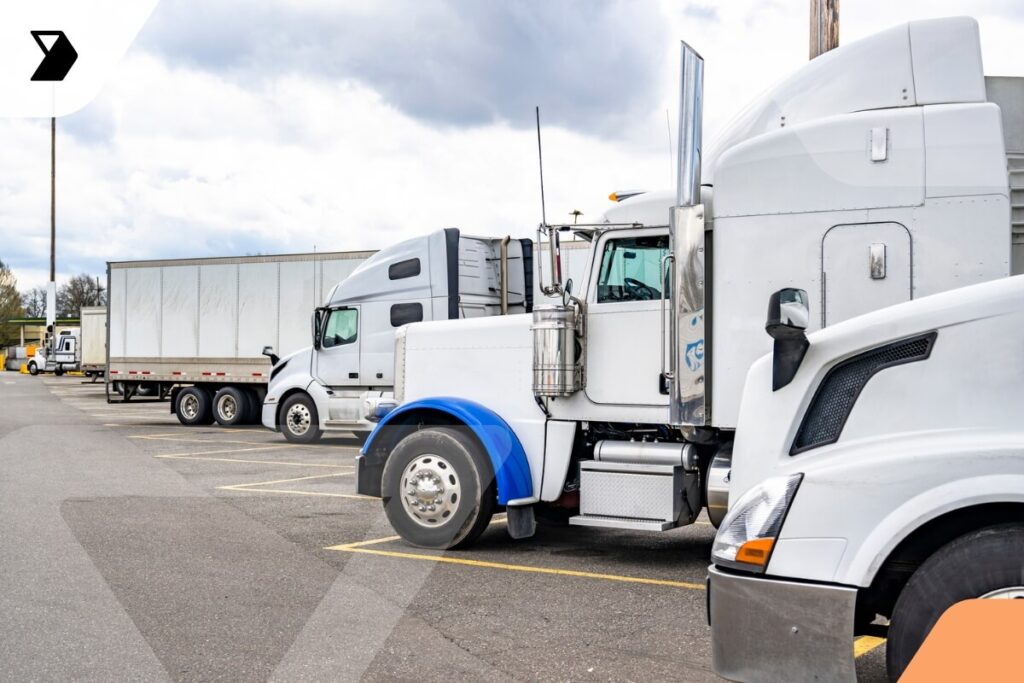What Is a Freight Audit? A Guide To Verifying Freight Bills
The audit process checks to ensure this freight bill is accurate. Does the actual cost charged match the quoted price?
Ready to transform your supply chain?

In essence, a freight audit is the process of verifying freight bills. The freight bill is the invoice from a carrier to the shipper, specifying the total charges for the freight shipment.
October 15, 2020

In this post, we’re looking at freight audits and how the process can be streamlined. The aim is simple. Find and resolve any issues as early as possible.
A freight audit also checks other shipping data against the bill of lading (BOL) to ensure accuracy. The freight auditor can then analyze these invoices to gain high-level insights into the logistics process of a company. Though vital, freight audits have traditionally been a tedious process.
Luckily, there’s a better way to audit with tech! Let’s dive in and find out more!
How Significant Are Inaccurate Freight Invoices?
It’s worth noting that inaccurate freight bills are much more common than most people realize. According to a report by ControlPay, only 17% of all freight invoices are accurate!
An inaccurate invoice isn’t necessarily an unethical practice by the carrier. Delivery contracts are complicated, and there’s a lot of room for miscommunication. Thus, there’s a high probability of errors in freight bills that can add significantly to freight costs.
According to CTSI-Global, on average, companies around the world can recover 2% to 5% of their freight costs through auditing. Without a freight audit process, these costly errors can go unnoticed for a long time. Over time, those errors can get expensive!
This avoidable extra expense could become a major disadvantage for your company. All businesses these days look to extract the maximum value out of their logistics operations. With new demands such as next-day deliveries at no extra charge, businesses are almost forced to optimize their logistics.
With profit margins under extreme pressure, businesses with optimized and cheap logistics have an edge. When your competitors are actively reducing their logistics costs, wasting money by overpaying on inaccurate freight bills can be a crippling mistake.
Thus, it most likely makes sense for you to invest in implementing efficient and scalable freight audit processes for your organization.
What should you look for when you’re reviewing a freight bill?
Common Errors in Freight Bills
As logistics contracts have become more complicated in recent years, the corresponding freight bills have also become complicated. So many shipping options are available. A variety of transporting modes and costing methods also add to the complexity of the modern supply chain.
All of this makes freight bills vulnerable to errors and miscalculations. Here are some of the common errors that you should be on the lookout for:
- Mistakes in the delivery rate
- Errors in the total cost charged
- Inaccurate shipment information, such as the weight of the package or quantity of items
- Incomplete or inaccurate BOL or eBOL data to check against
- Wrong application of tariffs, taxes, or customs duties
- Duplicate invoices
- Inaccurate type of freight mode used, such as FTL, LTL, and so on
- Miscalculation of additional taxes, such as value-added tax (VAT) or goods and services tax (GST)
- Extra charges, such as late pickup and surcharges
- Incorrect calculation of fuel rates
- Wrong billing or delivery address
- Transit time recorded incorrectly
Your audit team should verify these parameters on your freight bill.
Benefits of a Freight Audit
Is a freight audit really worth the time and effort? Yes. Here are three key reasons a freight audit is necessary.
Benefit 1: Freight Pay And Freight Payment
You can save money with a digital platform that helps root out overbilling and eliminate inaccurate billing. For example, detention charges. The thorn in the logistics industry’s side. Digitized BOLs come with a digital time stamp. That alone will nip the vast majority of issues. Other charges can creep in, like accessory fees such as tarps, dunnage, or lumper fees.
In short, despite our best efforts, errors can easily creep in on paperwork. The carrier’s cost estimate might be wrong. Maybe you negotiated a price of $100, but by mistake, the carrier charged you $150. Or the error might be a bit harder to spot.
For instance, maybe the product weighs 700 pounds, but the invoice charges your company for 850 pounds. These discrepancies can add up, costing you a lot more than you should have to pay.
Let’s say you have 100 deliveries per day. So, on average, that’s 3,000 deliveries per month. Even if just 5% of the invoices have an error, that’s 150 faulty invoices per month. And if, on average, each error costs you $10, then that’s $1,500 a month in expenses on just faulty freight bills!
Thus, it’s prudent to invest in freight audit to save on unnecessary costs. You don’t need a business management degree to tell you that paying expenses you didn’t incur is a bad idea.

Benefit 2: Identify Issues Early
Freight bills are complex because there are so many potential issues of contention between the shipper and the carriers. If you don’t identify these issues early, they can go unnoticed for months or even years. Maybe you had an agreement with your shipper on the extra charges levied on late pickups.
You notified your team that the agreed rate is $40 per hour. A year later, you realize that all this time, they’ve been charging $50 per hour! If you have hundreds of freight bills a day coming in, this discrepancy can easily go under the radar.
Thus, timely freight audits will help you catch these errors as soon as they occur. They’ll also help you clear up any miscommunication between the different parties as soon as there’s an issue. It’s much easier to discuss any confusion in the contract details early on rather than increase the possibility of heated arguments months later. At that stage, it’s almost certainly a lost cause.
Moreover, early identification will also help you decide if you want to work with certain carriers in the future. Let’s say your audit shows regular errors and overbilling by one carrier. Then you can decide to stop working with that carrier. Without an audit process, you may not realize for a long time that certain carriers aren’t up to the mark. Sometimes, it may be an honest mistake.
In that case, you can quickly consult the carrier to mitigate the issue and avoid any future occurrences.
Benefit 3: Gain Logistical Insights Through Data Analysis
Freight bills have so much information about a company’s shipments and deliveries. Manually noting down and managing all this data can be a mess. However, tools can help you digitize all your trucking documents. This allows both the shipper and the carrier to have greater visibility into the process.
These days, we also have cheap and accessible technologies to track the shipment 24/7. This will enable the shippers to integrate customer information, freight expense data, and logistics data. Thus, businesses can capture an enriched set of data points for every delivery throughout the journey.
You can then analyze this data to gain key strategic insights. For instance, you can look at your historical delivery data to identify inefficiencies and bottlenecks in processes. You can also gain visibility into carrier performance. This will help you optimize your logistics and supply chain operations.
You can analyze freight expenses across various regions, carriers, and delivery modes to reveal cost-saving opportunities. Maybe you’ll realize that certain routes are better, cheaper options. This data will also help you predict future freight expenses and plan accordingly. You can better prepare for trends that influence freight costs.
What About Your Carriers?
You need your carriers to take freight bill analysis as seriously as you do. Many carriers leave freight bills with incomplete entries and consider this acceptable. Many still use paper documents and don’t digitize their freight bills. Your new, data-driven freight bill analysis system will work best with data-driven carriers. Thus, you must build good relations with such carriers and be open to sharing critical data.
Implementing Freight Audit Processes
Most organizations don’t have the bandwidth to check hundreds of freight bills for errors. Once a firm gets big enough, the workload of verifying freight bills can get to be too much for your in-house team to handle manually.
When that happens, you have a few options. You could hire a separate team to handle freight audits, but that isn’t feasible for most businesses from a cost perspective. Another option is to outsource your freight audit to another firm. This way, you can focus on what you do best while the freight audit company verifies your freight bills for you.
Another solution is utilizing automated freight audit tools in your system to create something akin to a rolling audit. The only way to do this is with digitized documents producing clean, searchable data. Like anything, implementing freight audit processes might require some time and investment.
However, if you can reduce overbilling, optimize logistics, and get better data insights, it’s worth looking into.
Sound overwhelming? Fear not; just take things one step at a time. And the first step to cleaner freight data is to digitize your paperwork with a software partner like Vector.
This post was written by Aditya Khanduri. Aditya currently handles product and growth at Cryptio.co, and he’s also built a couple of B2B products. He’s proficient in data analysis with Python and has worked with multiple startups in the blockchain and artificial intelligence sector.
Continue reading
Ready to transform your supply chain?
Increase efficiency and productivity. Say goodbye to delays, handwriting errors, and time-intensive manual data entry.



